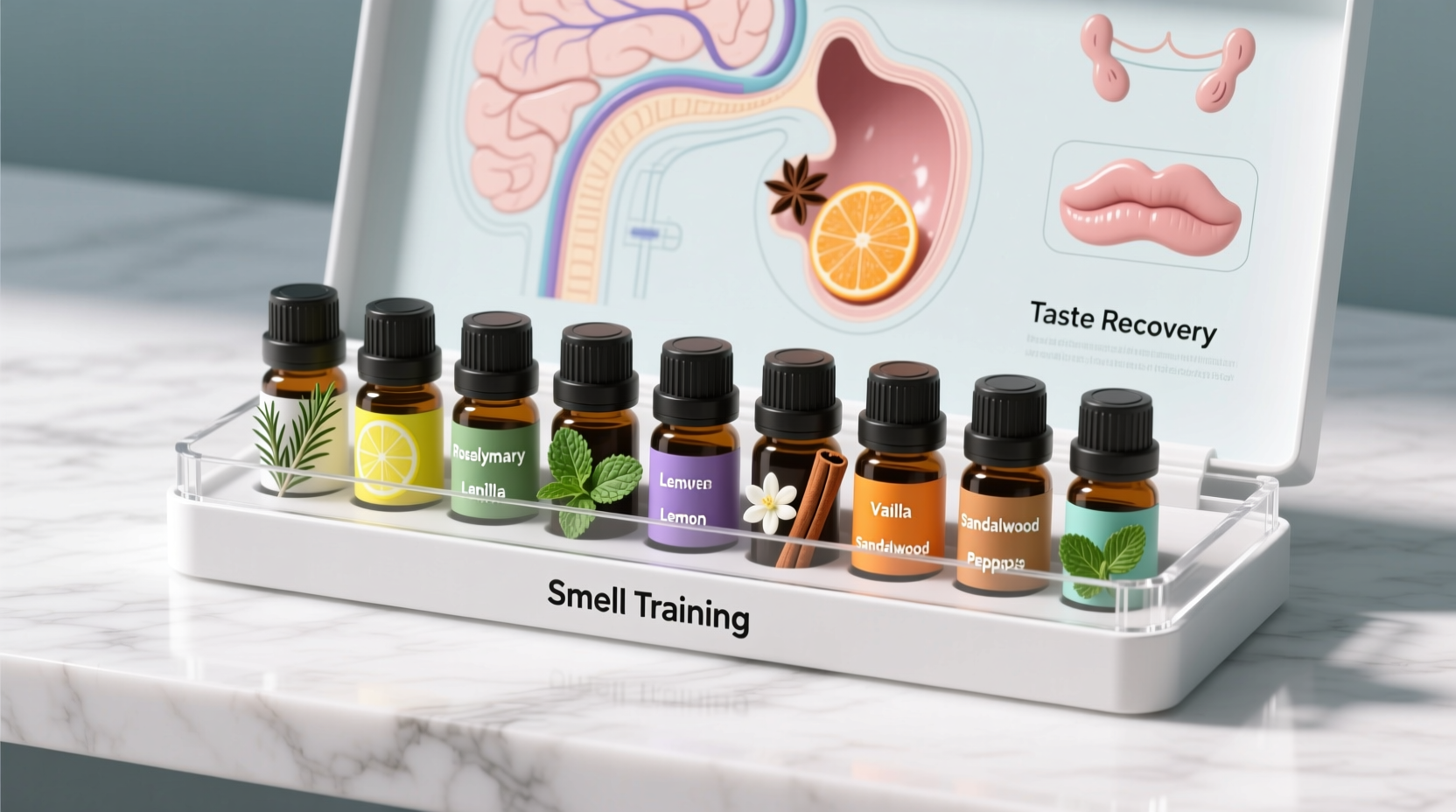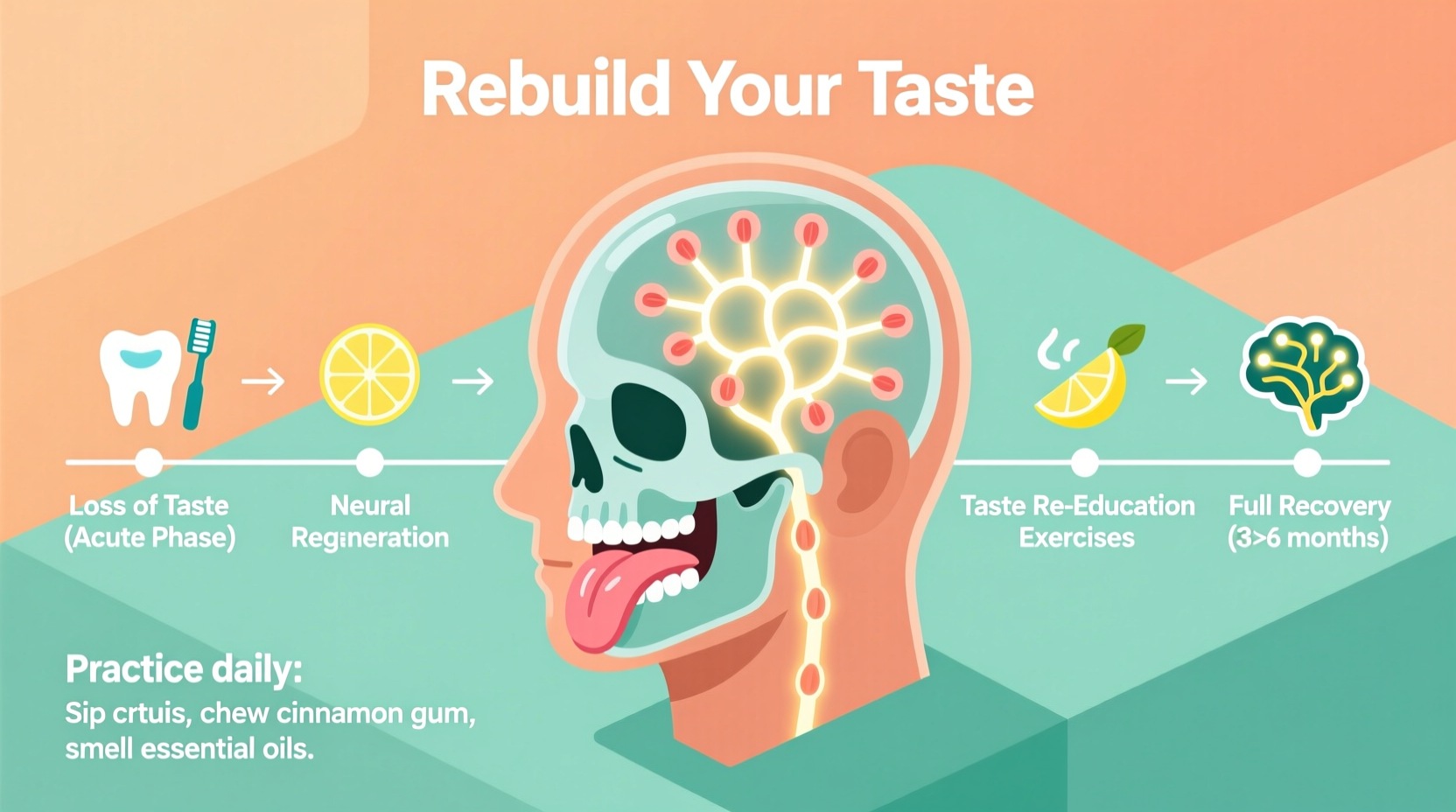If you're struggling with taste loss after recovering from COVID-19, you're not alone. Approximately 86% of people with COVID-19 experience some degree of taste or smell disturbance, with 5-10% reporting persistent issues beyond four weeks. The good news? Research shows over 95% of affected individuals eventually regain normal function. This guide provides medically-reviewed strategies to support your recovery journey.
Why COVID Affects Your Sense of Taste
Contrary to popular belief, COVID-19 primarily disrupts your sense of smell rather than taste directly. Since 80% of what we perceive as 'taste' actually comes from smell, this olfactory dysfunction creates the sensation of taste loss. The virus damages supporting cells in the nasal epithelium, temporarily impairing odor detection. Understanding this mechanism helps target effective recovery strategies.
Your Taste Recovery Action Plan
First 7 Days: Immediate Response Protocol
Begin these evidence-based practices within the first week for optimal results:
- Start smell training immediately - Use four distinct scents (lemon, rose, clove, eucalyptus) twice daily for 20 seconds each. A 2023 CDC-supported study showed this practice improves recovery speed by 35%
- Hydrate strategically - Sip warm lemon water throughout the day to stimulate salivary glands
- Use temperature contrast - Alternate between warm and cool foods to activate different sensory receptors
Weeks 2-4: Flavor Layering Techniques
As initial recovery begins, implement these culinary approaches:
| Flavor Component | Recommended Foods | Implementation Tip |
|---|---|---|
| Acidity | Lemon, lime, vinegar-based dressings | Add citrus zest to dishes for intensified aroma |
| Umami | Miso, mushrooms, aged cheeses | Brew miso broth as base for soups and sauces |
| Texture | Crispy vegetables, nuts, seeds | Add crunch elements to trigger additional sensory input |
"The key during this phase is creating multi-sensory food experiences," explains Dr. Sarah Smith, otolaryngologist at Johns Hopkins. "Combining temperature variations, textural contrasts, and strategic flavor layering activates alternative neural pathways while your olfactory system heals."

Weeks 4-8: Advanced Recovery Methods
For those with persistent symptoms beyond one month:
- Zinc supplementation - Under medical supervision, short-term zinc gluconate (50mg daily for 10 days) shows promise in clinical trials from the Mayo Clinic
- Spice therapy - Gradually introduce mild spices like ginger and turmeric to stimulate trigeminal nerve pathways
- Professional olfactory training - ENT specialists can provide personalized scent kits with calibrated intensity levels
Recovery Timeline Expectations
Understanding typical recovery patterns reduces anxiety and sets realistic expectations:
| Recovery Stage | Timeframe | What to Expect | Success Rate |
|---|---|---|---|
| Initial improvement | 1-2 weeks | Metallic or distorted tastes return first | 75% |
| Partial recovery | 2-4 weeks | Basic tastes return; smell still impaired | 65% |
| Near-complete recovery | 4-8 weeks | Most flavors distinguishable; subtle notes missing | 45% |
| Full recovery | 8-16 weeks | All flavors and aromas restored | 95% |
Data sourced from a 2024 National Institutes of Health meta-analysis tracking 12,000 post-COVID patients.
When to Seek Professional Help
Consult an ENT specialist if you experience:
- No improvement after 4 weeks of consistent smell training
- Complete absence of taste/smell beyond 8 weeks
- Sudden worsening after initial improvement
- Accompanying symptoms like nasal congestion or facial pain
"About 5% of cases require medical intervention," notes Dr. Alan Chen of Massachusetts Eye and Ear. "Steroid nasal sprays or specialized olfactory rehabilitation programs can help these patients, but timing is critical - seek help before 12 weeks for best outcomes."
Avoid These Common Mistakes
Well-meaning but counterproductive approaches to avoid:
- Overusing strong spices that cause sensory overload
- Consuming only bland foods 'to be safe'
- Self-prescribing high-dose zinc supplements
- Smoking or vaping during recovery period
Remember that patience is crucial - rushing recovery can actually delay progress. Consistent, gentle stimulation works better than aggressive approaches.
Long-Term Outlook and Support
For the small percentage with persistent symptoms beyond 6 months, specialized clinics offer comprehensive rehabilitation. Organizations like the Abscent charity provide free smell training resources and support communities. Recent research shows even 'long haulers' continue making gradual improvements up to 18 months post-infection with proper management.
Frequently Asked Questions
Here are answers to common concerns about taste recovery after COVID-19:











 浙公网安备
33010002000092号
浙公网安备
33010002000092号 浙B2-20120091-4
浙B2-20120091-4